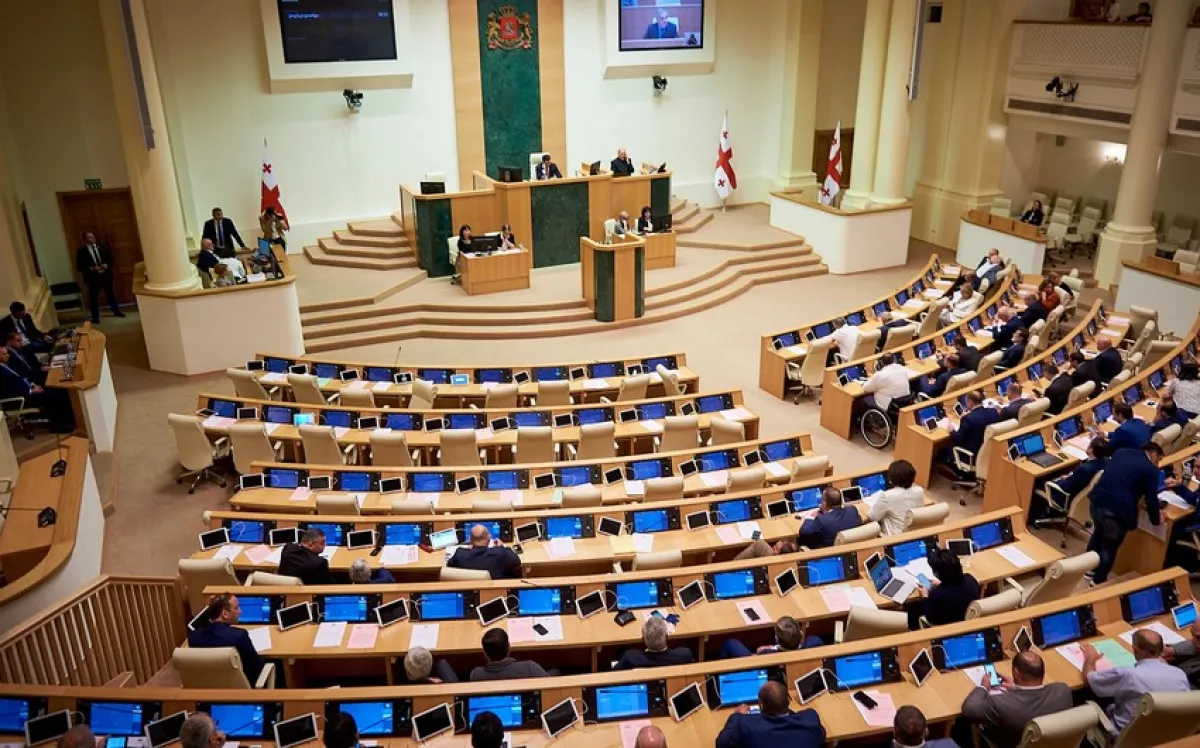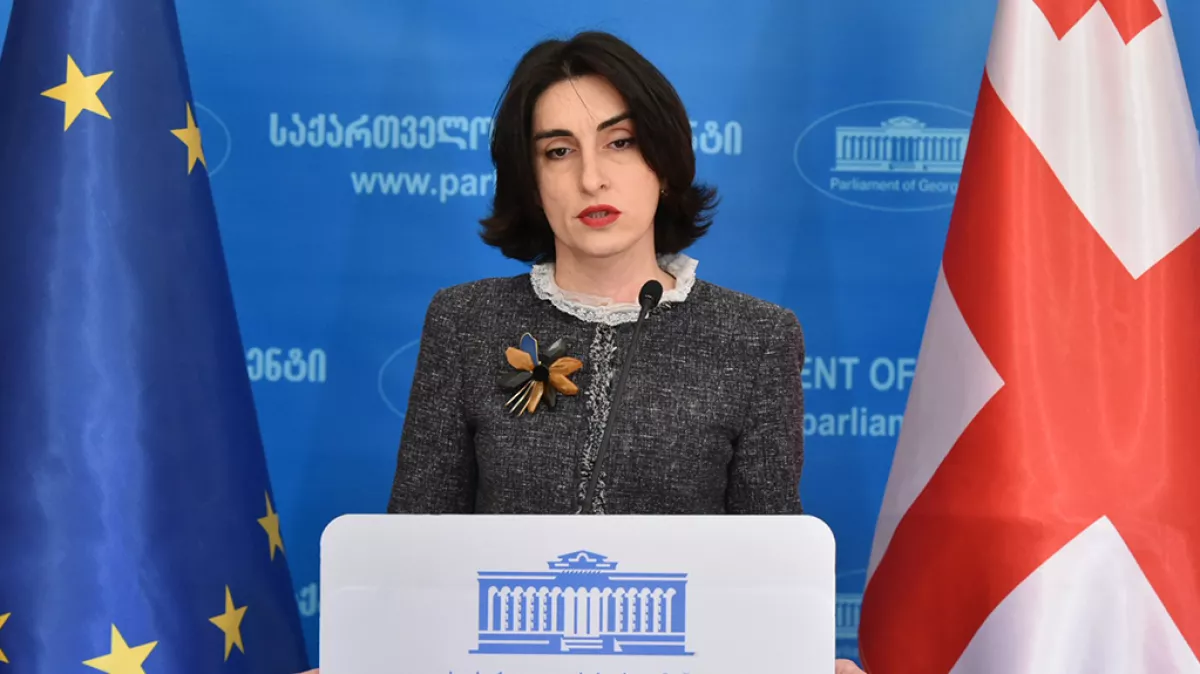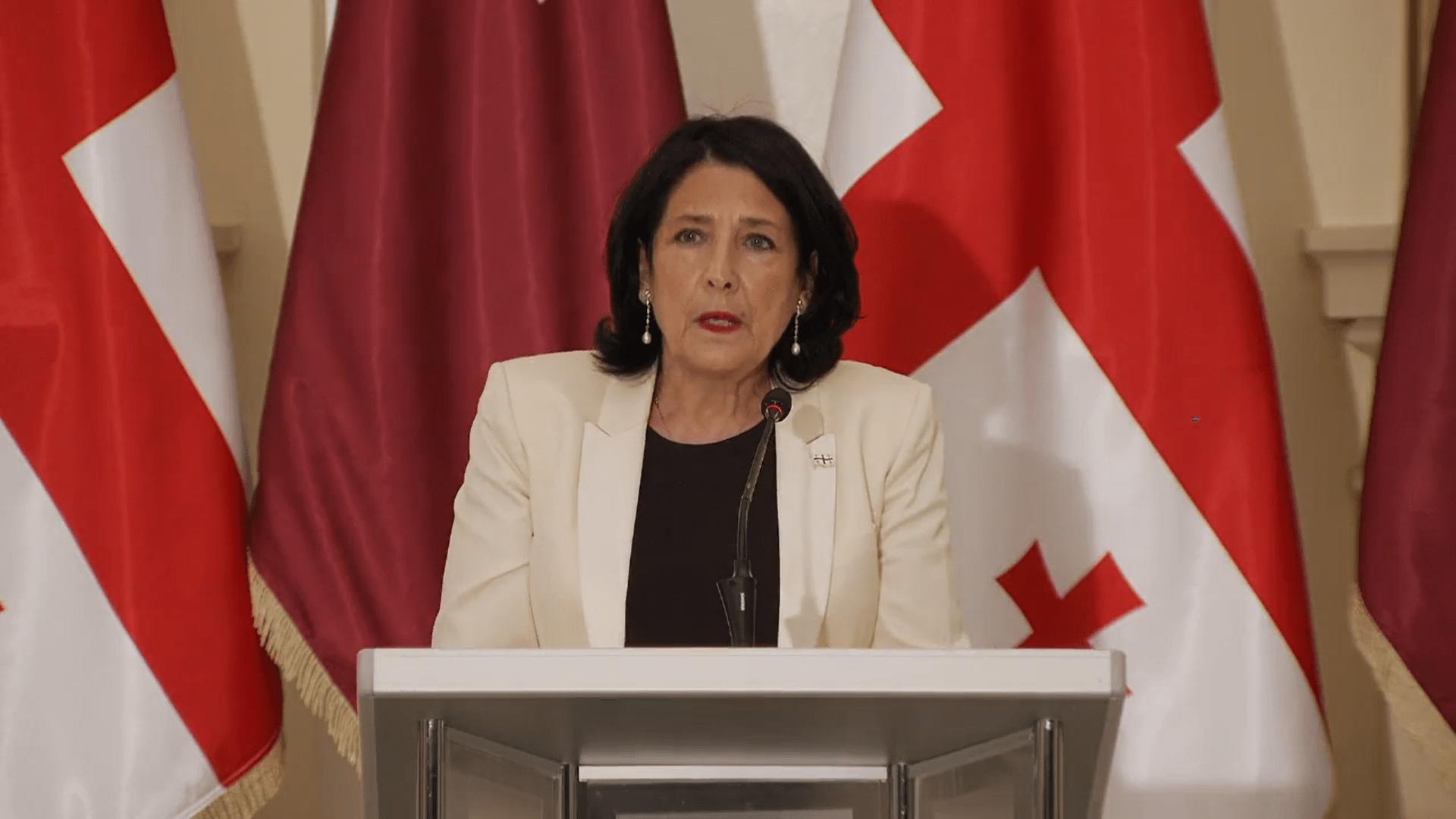Georgia: New parliament, outgoing president, and "geopolitical shift" Big stakes for Russia and the West
On Monday, November 25, the first session of the Georgian Parliament of the 11th convocation was held in Tbilisi. The MPs were elected in the parliamentary elections on October 26, 2024. As expected, President Salome Zourabichvili refused to open the session; instead, it was opened by the oldest member of Parliament, Lado Kakhadze. In general, the political career of this French citizen, as well as her time in Georgia, will likely come to an end this year. Salome Zourabichvili was elected the fifth president of Georgia in 2018 for a six-year term, which expires on December 16, 2024.
Newly elected opposition members were also absent from the parliament hall. However, this did not hinder the full operation of Parliament, as the ruling party Georgian Dream holds 89 out of 150 seats.

The way the opposition, which "does not recognize its legitimacy," protested against the new parliament session shows that their street actions are completely marginal. Opposition-minded youth occupied the roadway of Rustaveli Avenue in front of the parliament starting the evening of November 24, camping out in tents overnight. However, it was nearly impossible for cameramen and photographers to find an angle to capture "mass protests." Drone images showed almost an empty space in front of the parliament, with only very small groups of protesters present even at the height of the demonstration.
There were far fewer protesters in central Tbilisi than there were police and law enforcement officers. Although the protesters sometimes behaved very noisily, banging on the barriers around the parliament building and shouting insults at the ruling party through loudspeakers, some protesters even threw eggs at the parliament building. The protests led to more traffic jams in Tbilisi due to the closure of Rustaveli Avenue, increasing the frustration of those stuck in traffic over the opposition's actions.
As a result: during its first session on November 25, the 11th convocation of the Georgian Parliament recognized the authority of 150 deputies, with 88 votes in favor and none against. Shalva Papuashvili was once again elected Speaker of the Georgian Parliament. On the eve of the first session of the new parliament, the composition of the government was also revealed. Irakli Kobakhidze remains the Prime Minister, while only the heads of the Ministry of Foreign Affairs, the Ministry of Justice, and the Ministry of Environmental Protection and Agriculture were changed. The new Minister of Foreign Affairs of Georgia, replacing Ilia Darchiashvili, will be Maka Bochorishvili, who previously served as the chairperson of the Committee on European Integration.

It seems that the European Union has come to terms with the fact that the Georgian Dream party has remained in power and intends to gradually normalize relations with the Georgian government. There were no negative statements from European leaders regarding the start of the new session of the Georgian parliament. Furthermore, a resolution project concerning Georgia was registered in the European Parliament, urging all parties to respect the results of the parliamentary elections held on October 26, work constructively while adhering to the rule of law, and overcome polarization in Georgian society. This resolution project calls for the European Union to engage in a unified and focused dialogue with the new Georgian government.
Interestingly, this "reconciliation" project was registered by Italian MEP Danilo Della Valle on behalf of the left-wing group of the Five Star Movement. If even the left-wing forces in the European Parliament, who criticized the Georgian Dream for banning LGBT propaganda, are inclined to recognize both the legitimacy of the elections and the continued rule of the "Georgian Dream" government, it is even more likely that European right-wing politicians will support comprehensive cooperation between the EU and the current Georgian government.
On November 26, in its plenary session, the newly elected Georgian parliament approved the date of the presidential election—December 14, with the inauguration scheduled for December 29.

For the first time in the history of post-Soviet countries, Georgia will implement a fundamentally new system for electing its president. The new president of Georgia will be elected for a five-year term without debates, through an open vote by an electoral college, which will be approved by the Central Election Commission. The electoral college will consist of 300 members, including all 150 members of parliament, 20 members of the Supreme Council of the Autonomous Republic of Abkhazia, 21 members of the Supreme Council of Adjara, and 109 representatives of local self-government, distributed proportionally according to the support received by parties in the 2021–2022 elections. The right to nominate a candidate for president will be held by no fewer than 30 members of the electoral college. Each member of the electoral college will be allowed to support only one candidate. In the first round, the candidate who receives at least two-thirds of the votes from the full composition of the electoral college will be considered elected. If no candidate gains the required number of votes, a second round of voting will be held, where the winner will be determined by a simple majority.
Since the Georgian Dream party dominates almost all government bodies that delegate representatives to the electoral college, the presidency will ultimately be determined by this party and its leader, Bidzina Ivanishvili. Regarding potential candidates for the presidency, information has already leaked to the media suggesting that the possible candidates from the Georgian Dream party could be the current party chairman and former prime minister Irakli Garibashvili, as well as the son of Georgia’s first president, Zviad Gamsakhurdia, Konstantine Gamsakhurdia, who has recently become the head of the National Parliamentary Library.
Although the executive secretary of the ruling party, Georgian Dream – Democratic Georgia, Mamuka Mdinaradze, quickly denied rumours about both Irakli Garibashvili and Konstantine Gamsakhurdia as candidates, the information leak about the latter was likely not accidental. The mere mention of Konstantine Gamsakhurdia’s candidacy could be seen as a "symbolic response" to those accusing the Georgian Dream party of following the Kremlin's policies. As is well-known, President Zviad Gamsakhurdia could be criticized for many things, but not for "pro-Russian policies."
On November 27, Bidzina Ivanishvili announced that the presidential candidate from the Georgian Dream party would be former footballer Mikheil Kavelashvili, who played for the Russian champion club "Spartak-Alania" from Vladikavkaz in 1995. With this nomination, the ruling party clearly signals its intention to reconcile both with Russia and with the Ossetians.
Meanwhile, it indeed seems that the most challenging task for the Georgian Dream will be the normalization of relations with Russia, which is inextricably linked to the issue of restoring Georgia's territorial integrity. Both countries find themselves in a unique situation where they objectively need each other. Russia has experienced a significant escalation "on the Ukrainian front" due to the US allowing strikes with Western missiles on internationally recognized Russian territory, and such strikes have already begun. Russia's response, using the experimental missile "Oreshnik," capable of carrying nuclear warheads, to strike the "Yuzhmash" factory in Dnipro, did not stop further missile strikes by Ukrainian forces on Russian territory.
All of this indicates that the Kremlin is facing serious military, logistical, and economic challenges on its western front. The "outreach to the outside world" through Georgia is becoming increasingly relevant for Russia. Moscow is more and more realizing that it cannot afford to neglect relations with a small but potentially friendly country, especially one where pragmatic leaders are now in power. This is all the truer in light of the separatist entities, which have become "trapped" on transit routes potentially vital for Russia through Georgia. Therefore, it is no coincidence that the Director of the Russian Foreign Intelligence Service (SVR), Sergey Naryshkin, paid special attention to the current situation in Georgia, expressing hope that Western attempts to carry out a coup in Georgia will fail, just as they did in Kazakhstan and Belarus.

" The West never lets its victims go so easily. Today, Tbilisi is facing another attempt at a colour revolution, an attempt at a coup d'état. Let's hope it fails, just as the brazen attempts of the West to destabilize Belarus and Kazakhstan failed," stated Naryshkin at a meeting of the heads of security and intelligence agencies of CIS countries in Moscow. He also noted that in the past, "Georgia, by reducing its ties with the post-Soviet space in exchange for promises of European integration, largely deprived itself of strategic depth," but the country's authorities have since realized the harmfulness of such a policy. The mention of "strategic depth" can be seen as a direct hint by Russia's top intelligence officer regarding Abkhazia and the Tskhinvali region, which Russia might offer to return to Georgia in exchange for its geopolitical pivot away from the West.
On the other hand, Tbilisi does not want to completely ruin its relations with the EU and NATO, which makes the appointment of Maka Bochorishvili, who has extensive experience in "Western-oriented" diplomacy, quite logical. It can be expected that once Salome Zourabichvili finally returns to her native France and the current opposition leaders "play their part," the West may place its bets on other, more radical forces in an attempt to change the government in Georgia and bring it fully under the control of Brussels and Washington.
Vladimir Tskhvediani, Georgia, for Caliber.Az








